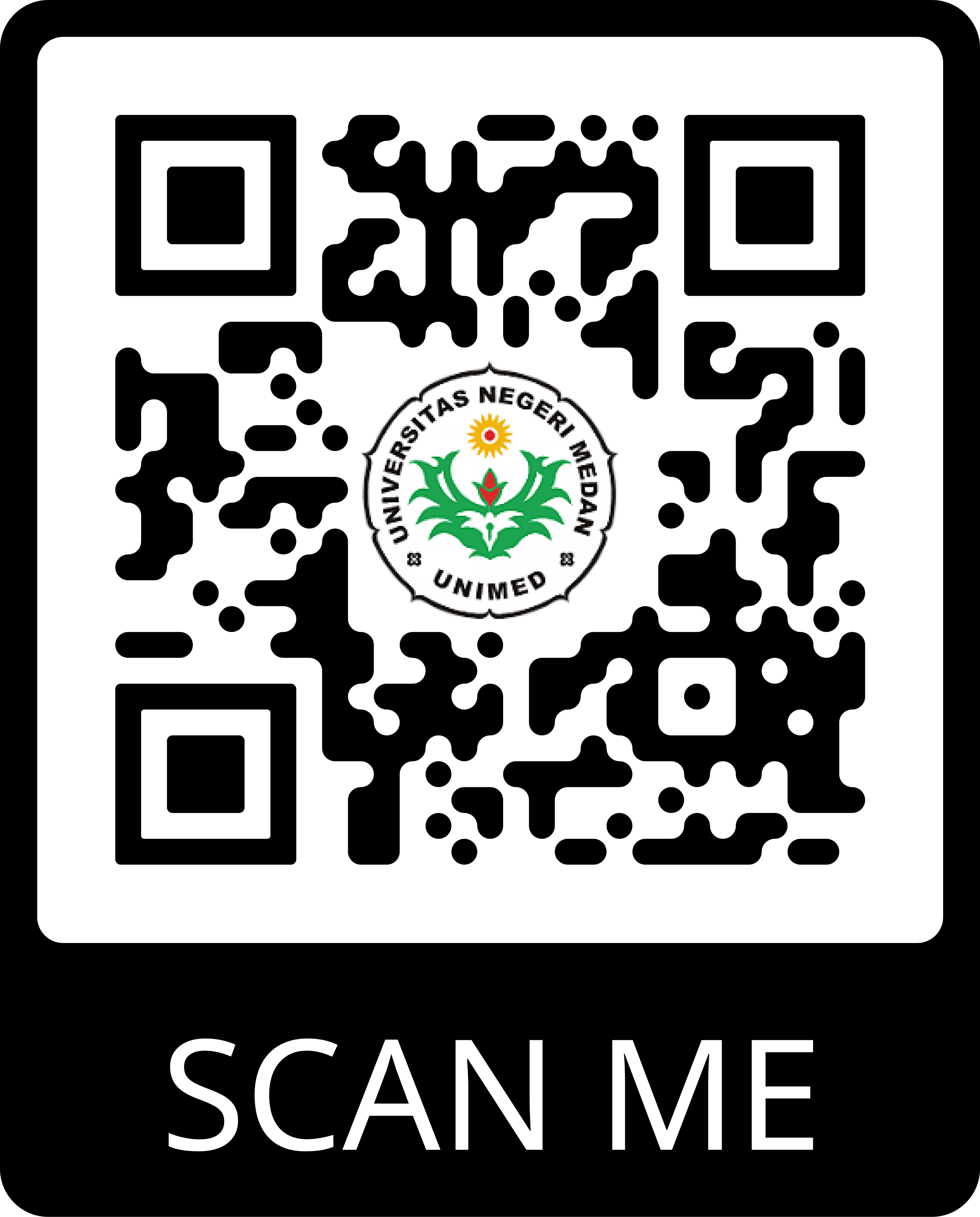THE EFFECT OF PROBLEM BASED LEARNING (PBL) MODEL TOWARD STUDENT'S PROBLEM SOLVING ABILITY AND CRITICAL THINKING ABILITY IN JUNIOR HIGH SCHOOL
Abstract
Keywords
Full Text:
PDFReferences
Arends, R. I. (2013). Belajar untuk Mengajar Learning to Teach. Jakarta: Pustaka Pelajar.
Ennis, R.H. (1985). A Concept Of Critical Thinking. Harvard Educational Review.
Joyce Bruce, Well Marsha, dan Calhoun Emily. (2009). Model of Teaching (Model-Model Pengajaran) edisi kedelapan. Yogyakarta: Pustaka Pelajar.
Lilis. (2007). Pengaruh Keikutsertaan dalam Program Pengembangan Pribadi Terhadap Rasa Percaya Diri Siswa Sekolah Pengembangan Pribadi. Tesis. UPI.
Nduru, J.K. (2016). Efek model problem based learning dan berpikir kritis terhadap kemampuan pemecahan masalah IPA siswa. Thesis. Tidak Dipublikasikan. Medan: PPS UNIMED.
Redhana, W. (2012). Model pembelajaran berbasis masalah dan pertanyaan socratik untuk meningkatkan keterampilan berpikir kritis siswa. Jurnal FMIPA Universitas Pendidikan Ganesha. 351-365.
Sagala. (2011). Konsep dan Makna Pembelajaran. Bandung: IKAPI.
Sanjaya,W. (2008). Strategi pembelajaran berorientasi standar proses pendidikan. Jakarta: Prenada media
Setyorini U, Sukiswo dan Subali. (2011). Penerapan model problem based learning untuk Meningkatkan kemampuan berpikir kritis siswa SMP. Jurnal Pendidikan IPA Indonesia. 7(12), 18-24.
Suprapti, (2012). Pengaruh Penerapan Problem Based Learning terhadap Kemampuan Pemecahan Masalah IPA Ditinjau dari Motivasi Belajar Siswa SMAN 4 Banjarbaru. S2 thesis, UNY.
Trianto. (2007). Model-model pembelajaran inovatif berorientasi konstruktivistik, Jakarta: Prestasi pustaka.
Urip Astika, Suma dan Suastra. (2013). Pengaruh model pembelajaran berbasis masalah terhadap sikap ilmiah dan kemampuan berpikir kritis. Jakarta: Journal Program Pascasarjana Universitas Pendidikan Ganesha , Program Studi IPA. 5(13),12-22.
DOI: https://doi.org/10.22611/jpf.v6i2.8127
Article Metrics
Abstract view : 957 timesPDF - 598 times
Refbacks
- There are currently no refbacks.
Copyright (c) 2017 elly mahrani

This work is licensed under a Creative Commons Attribution 4.0 International License.
___________________________________________________________________________________________________________________________________________
Jurnal Pendidikan Fisika
p-ISSN : 2252-732X | e-ISSN : 2301-7651
Organized by The Magister of Physics Education Departement in State University of Medan in collaboration with Physical Society of Indonesia (PSI)
W: https://jurnal.unimed.ac.id/2012/index.php/jpf/index
E : jpfunimed@unimed.ac.id
rajo.hasim@gmail.com (principal contact)

_____________________________________________________________________________________________________________________________________________

This work is licensed under a Creative Commons Attribution-NonCommercial 4.0 International License.





